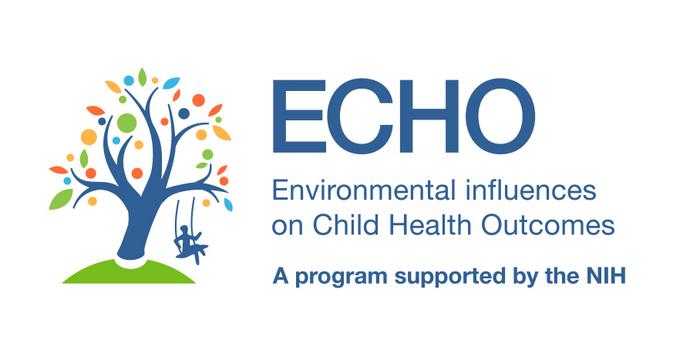Living in neighborhoods where residents have lower incomes and limited food access during pregnancy was associated with an increased risk of babies born small for gestational age or with lower birthweight, according to a new study from the NIH Environmental Influences on Child Health Outcomes (ECHO) Program.

Credit: NIH ECHO Program
Living in neighborhoods where residents have lower incomes and limited food access during pregnancy was associated with an increased risk of babies born small for gestational age or with lower birthweight, according to a new study from the NIH Environmental Influences on Child Health Outcomes (ECHO) Program.
Previous studies have shown that maternal diet during pregnancy can impact the physical and mental health of a mother. However, less is known about how food insecurity affects health outcomes for newborns. In a new research article, ECHO researchers analyzed data to understand what connections might exist between where a pregnant person lives, their access to food, and birth outcomes.
This ECHO analysis, recently published in the American Journal of Clinical Nutrition, indicates a possible connection.
“Given the long-term effects of adverse birth outcomes on later cardiovascular disease risk and other conditions, more research is needed to evaluate whether interventions and policies that improve food access during pregnancy would be effective in improving birth outcomes and promoting child health,” said Izzuddin M. Aris, PhD, of the Harvard Pilgrim Health Care Institute.
Using nationwide data from more than 22,000 ECHO Cohort participants, a team of ECHO researchers found that, during pregnancy, 24% of those participants lived in a low-income neighborhood where a third or more residents lived over one mile from a grocery store (or more than 10 miles in rural areas). They also found that about 14% of the participants lived in neighborhoods with high poverty rates and where more than 100 households had no access to a vehicle and lived more than half a mile from the nearest grocery store.
Residence in low-income, low-food-access and low-income, low-vehicle-access neighborhoods was associated with lower birth weight, higher odds of babies born small for gestational age, and lower odds of babies born large for gestational age. However, researchers did not find any associations of individual food insecurity with birth outcomes.
To conduct this study, researchers matched pregnant individuals’ home addresses with information about nearby food availability from the U.S. Food Access Research Atlas, which provided data on household income, the availability of a household vehicle, and where people can access food in different neighborhoods.
“In future studies, we want to look at health habits and chemical exposures to understand what else could be affecting birth outcomes,” said Dr. Aris.
Dr. Aris led a team of ECHO Cohort researchers from across the country who collaborated on the data analysis and writing for this research article.
###
About ECHO: Launched in 2016, the Environmental influences on Child Health Outcomes (ECHO) Program is a research program in the Office of the Director at the NIH with the mission to enhance the health of children for generations to come. ECHO investigators study the effects of a broad range of early environmental influences on child health and development. For more information, visit echochildren.org.
About the NIH: NIH, the nation’s medical research agency, includes 27 Institutes and Centers and is a component of the U.S. Department of Health and Human Services. NIH is the primary federal agency conducting and supporting basic, clinical, and translational medical research, and is investigating the causes, treatments, and cures for both common and rare diseases. For more information, visit www.nih.gov.
Journal
American Journal of Clinical Nutrition
DOI
10.1016/j.ajcnut.2024.02.022
Method of Research
Observational study
Subject of Research
People
Article Title
Birth outcomes in relation to neighborhood food access and individual food insecurity during pregnancy in the Environmental Influences on Child Health Outcomes (ECHO)-wide cohort study




